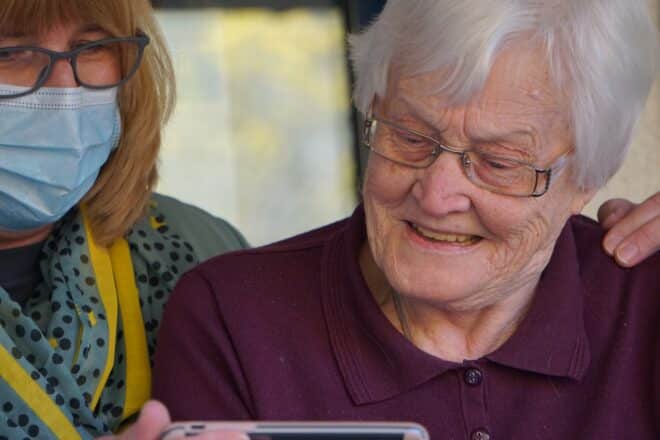Facing the inevitable end of life can be an emotionally challenging time for both the patient and their loved ones, especially when it comes to providing appropriate care. In “Communicating and Anticipating Needs in end-of-life care“, you’ll discover how essential the dual prongs of quality palliative care, one aiming at pain and symptom control, and the other providing critical emotional and spiritual support.
The article highlights the fluctuating demands of caregiver roles due to the patient’s changing needs, the respite care’s role in providing relief to caregivers, and the importance of early discussions regarding end-of-life decisions. By focusing on clear communication among family members, the article further emphasizes how ensuring compliance with the patient’s wishes can be accomplished through early deliberate conversations and legal arrangements like advanced directives and power of attorney.

Understanding Terminal Illness and End-of-Life Care
Defining terminal illness
A terminal illness is a condition that has no cure and is expected to lead to a person’s death. This is a difficult subject to tackle and comprehend, but it’s a reality that many people and their families have to face. Thus, understanding what a terminal illness entails stands as an essential aspect in accepting the situation and facilitating appropriate care.
The concept of end-of-life care
End-of-life care refers to health care, not only of patients in the final hours or days of their lives, but more broadly care of all those with a terminal illness that has become advanced, progressive, and incurable. The main goal of end-of-life care is to ensure that the patient is comfortable, their pain is managed effectively, and their specific wishes are acknowledged and respected.
Duration of the final stage of terminal illness
The duration of the final stage of a terminal illness can differ vastly from one person to another. It can range from a few weeks to several years. Many factors such as the specific illness, the person’s overall health profile, and the treatment sought, influence this.
Importance of Palliative and Hospice Care
Role of palliative care
Palliative care plays a crucial role in managing the symptoms and side effects of a terminal illness. Pain control and symptom management are central to this type of care, with the goal of promoting the best possible quality of life for the patient.
Understanding Hospice care
Hospice care is another form of end-of-life care focused on the patient’s comfort and quality of life rather than curing the illness. It provides emotional and spiritual support to both the patient and their families in coping with the challenges of a terminal illness.
Emotional and spiritual support in end-of-life care
In addition to medical intervention, emotional and spiritual support are invaluable components of end-of-life care. This type of support helps patients and their families navigate the emotional journey that a terminal illness undoubtedly brings.
Challenges in End-of-Life Caregiving
Emotional challenges
The emotional challenges of dealing with a loved one’s terminal illness can be overwhelming. Emotions can range from fear and anxiety to sadness and sometimes even anger. It’s essential to acknowledge these feelings and seek appropriate channels for expressing and coping with them.
Change in caregiver’s responsibilities
The caregiver’s role often changes significantly during end-of-life care. The focus shifts from seeking a cure to ensuring comfort, which can make practical aspects of care more challenging. It’s also vital to be aware of the emotional toll this role can take and ensure appropriate support for the caregiver.
Support needed for caregivers
End-of-life care can be emotionally draining and physically demanding. Thus, caregivers also need substantial support. This can be practical assistance like sharing caregiving responsibilities with other family members, or emotional support, like counselling or support groups.
Determining the Start of End-of-Life Care
Understanding of patient’s illness progression
The start of end-of-life care varies for different individuals and is often dependent on the progression of the illness. It typically begins when life expectancy is believed to be six months or less under the assumption the disease progresses naturally.
Variable start timelines for different individuals
Due to the individual nature of terminal illnesses, the onset of end-of-life care has flexible timelines. It’s vital for medical professionals and loved ones to maintain open lines of communication to correctly assess when such care should commence.

Evolution of Care needs in End-of-Life Care
Changes in patient requirements
The requirements of a patient undergoing end-of-life care can dramatically change over time. It’s crucial to reassess and adapt to these changes continuously to provide the most appropriate and comfortable care possible.
Adjustments and adaptations by caregivers
As a patient’s needs change throughout end-of-life care, caregivers must be adaptable and willing to adjust their responsibilities. This might mean learning new practical skills, or even engaging additional help or services to meet the patient’s evolving requirements.
Importance of Respite Care
Defining respite care
Respite care is a form of short-term relief for caregivers that allows them time to rest and recharge. This can involve bringing in a temporary caregiver so the primary caregiver can take a break while knowing their loved one is still receiving appropriate care.
Benefits for caregivers
Respite care provides numerous benefits for caregivers, including rest, time for personal needs, stress relief, and a chance to maintain better overall wellbeing. Such breaks can make a huge difference in the emotional and physical health of the caregiver, allowing them to provide better care in the long run.
Importance of self-care for caregivers
During the demanding period of end-of-life care, it’s essential for caregivers to remember to take care of themselves. Allowing time for self-care amidst the caregiving responsibilities helps maintain the caregiver’s own health and well-being, enabling them to provide the best possible care for their loved one.

Coping with Anticipation of Death
Common emotional responses
Anticipating a loved one’s death is an emotionally tough time. Common reactions include anxiety, depression, fear, and feelings of loss even before the actual death. These are all normal responses and it’s important to remember that everyone processes grief differently.
Role of bereavement specialists and spiritual advisors
During this time, bereavement specialists and spiritual advisors can be an invaluable source of support. They help navigate through the emotional terrain of grief and provide strategies for coping with the practical aspects of the bereavement process.
Support structures during this period
Support structures, be they family, friends, or support groups, play a key role during this time. Sharing experiences and feelings with others who understand can provide comfort and make the bereavement process less isolating.
Early Decision-Making and Legal Considerations
Importance of early conversations on end-of-life decisions
Having conversations about end-of-life decisions as early as possible can help ensure that the patient’s wishes are respected. This can include discussions about future medical care, preferred place of death, choices about life-prolonging treatments, and even decisions around personal and financial matters.
Understanding advance directives
Advance directives are legal documents that allow patients to spell out their decisions about end-of-life care ahead of time. They guide family members and healthcare professionals to ensure patients’ medical wishes are followed if they are unable to speak for themselves.
Understanding power of attorney
Power of attorney is a legal document where an individual appoints someone else to manage their health and wellbeing, finances or property if they lose capacity to make decisions themselves. Settling this while the patient still has capacity to make decisions ensures their affairs are well managed even when they can’t do it themselves.
Significance of Communication among Family Members
Role of family communication in end-of-life care
Clear and open communication among family members is crucial during end-of-life care. This promotes a supportive environment, ensuring everyone is on the same page about the patient’s wishes and the planned course of care.
Understanding and respecting the patient’s wishes
The patient’s wishes regarding their care and personal affairs should be respected. Their preferences for care, decisions about their personal belongings, funeral wishes, and how they wish to be remembered should be discussed openly and honoured.
Evaluating the need for Additional Support
Determining the need for home-help
Sometimes, additional home-help may be necessary during end-of-life care. This could range from hiring a visiting nurse to aid with medical tasks, to enlisting help with housekeeping or meal preparation.
Considering hospice placement
In certain circumstances, placement in a hospice may become an important consideration. This is a specialized facility that provides comprehensive end-of-life care, including symptom and pain management, emotional support, and spiritual support for both the patient and family.
Evaluation of patient’s medical status
The patient’s medical status must be continually evaluated to determine the need for additional help or services. Medical professionals can provide crucial assessments and recommendations based on the patient’s evolving condition, ensuring the best possible care throughout the end-of-life journey.
